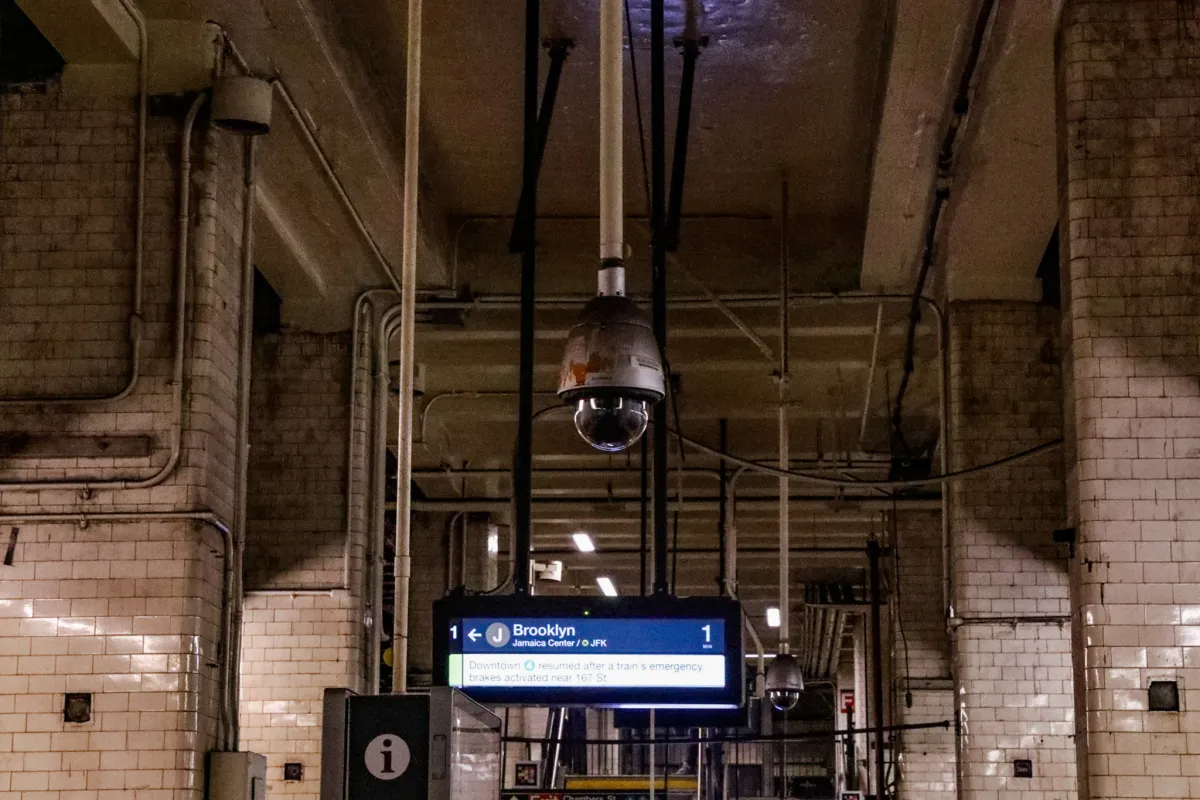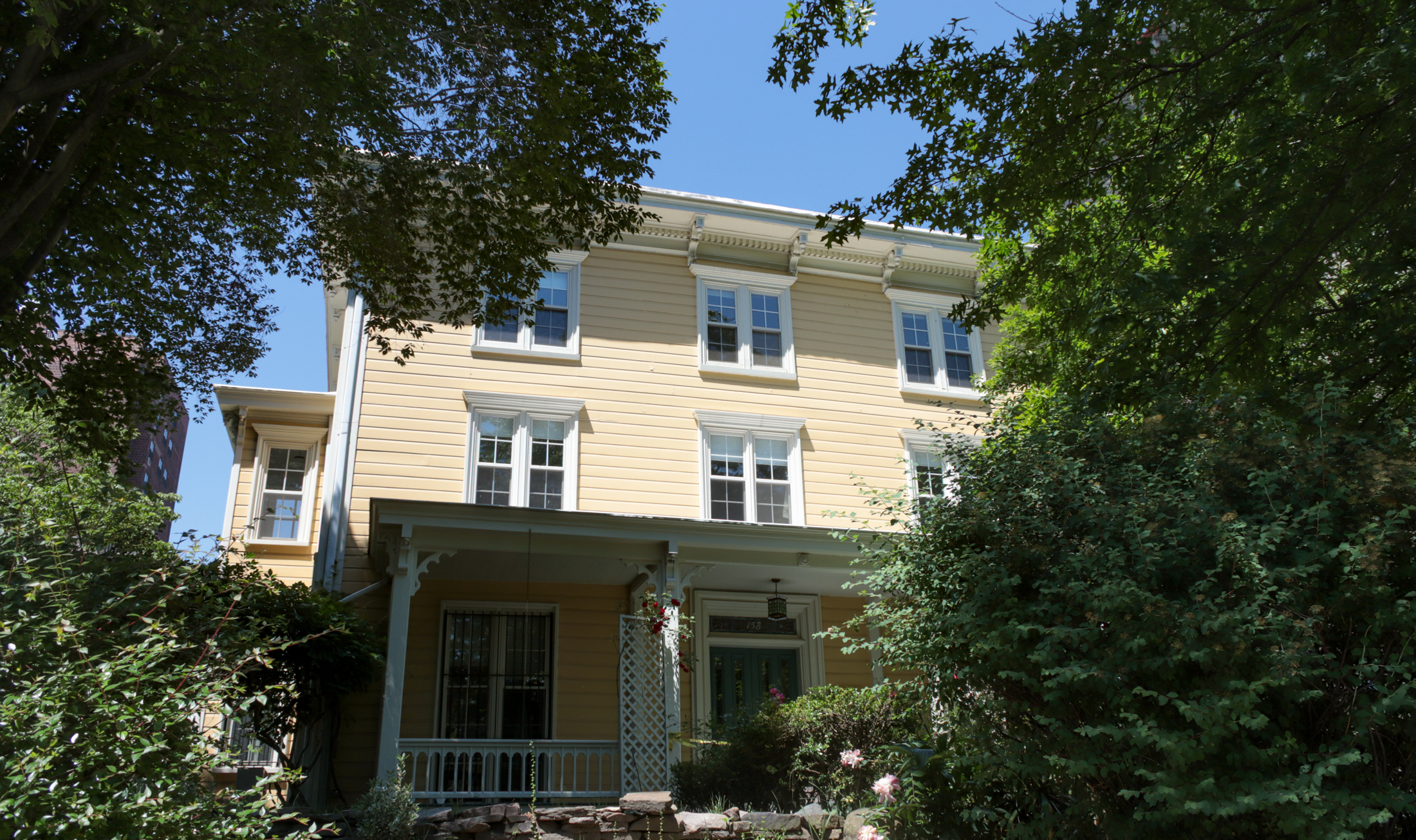Greedy Landlords Causing Storefronts to Sit Empty?
The Daily News has a story about how the one-two punch of unrealistically high asking rents and the recession has resulted in a number of empty storefronts in brownstone Brooklyn. Cases in point, where retail spaces are still empty after rent increases: the dry cleaner on Court and Baltic that had to vacate after the…


The Daily News has a story about how the one-two punch of unrealistically high asking rents and the recession has resulted in a number of empty storefronts in brownstone Brooklyn. Cases in point, where retail spaces are still empty after rent increases: the dry cleaner on Court and Baltic that had to vacate after the landlord hiked the rent from $2,500 to $6,500 a month; Royal Video, above, which left its old Flatbush Avenue spot for a smaller one after the landlord was said to be asking $10,000 a month for the space; and a Myrtle Avenue shoe repair that shut down this fall. It seems, however, that while there are certainly examples of greedy/delusional landlords to be found, there aren’t an overwhelming number of fresh vacancies on the main retail drags in Cobble Hill, Prospect Heights, and Park Slope—that these guys tend to be the exception, rather than the rule. Thoughts?
Brooklyn Storefronts Empty [NY Daily News]
Photo by plangently.





“I find it completely ludicrous, disengenuous and patently absurd that tenants who are in business to make money feel so self entitled that they shouldn’t pay market rents.”
DIBS, it’s not the current market price if nobody will pay it. I’ve heard stories about restaurant owners trying to find a space to rent in our neighborhood but finding rents absurdly high. Which keeps our amenities scarce here. I’ve heard stories from my hair stylist when her landlord tried to increase her rent four fold. The problem is Brooklyn landlords are asking for the rent they think the space will be worth 5-10 years from now when they sign long commercial leases. The boom in Brooklyn got them overexcited and greedy. Their speculation is often based entirely on talking to non-expert cronies, not knowledgeable, practical people and they aren’t taking the recession into account; they’re a bit in denial. Ironically the blighted empty storefronts make all that progress and increase in value they speculate will happen not happen. Most these landlords lucked into buying these buildings a long time ago and aren’t geniuses. Clearly.
In London, since April of ’08, commercial property owners have to pay a special tax for leaving their properties vacant more than 6 months. The goal is to encourage rent reductions that would make London more competitive with other EU cities whilst also improving access to premises for new and existing firms. And generate revenues for the Treasury!
fsrg, from your 1:52 post it would seem that we are in agreement. Yes, leases will become incredibly onerous for new tenants.
This is typical of government interference with free enterprise.
I agree with you bxgrl that small businesses are important to the economy. They are very important.
However, that does not absolve the business owner from poor decisionmaking. No one puts a gun to their head to accept a certain rent when they sign their lease.
I think, at the end of a 10-15-20 year lease, if the place is way under market, the landlord should get a fairer rent. The tenant has most likely reaped the benefits of a below market lease for a good period of their tenancy. Why is that fair???
If the landlord is too pigheaded to understand his property is not worth what he thinks it is then he will pay the price. yes, it’s unfortunate that the tenant is now without the space that would have been mutually beneficial to both parties but, that’s capitalism.
Anyone with a lease that they got in the early to late 90s is now most likely, paying well below market, even after a correction here.
DIBS – LLs wont “get around this”, they’ll just take on another cost – litigation and then either have tighter margins and/or greater losses or if the economy rebounds they’ll pass the cost on to new “initial” tenants.
What you call a loophole or a “way around” is really equal to tens of thousands of dollars trying to negotiate through the mess that is NYC LL/Tenant court. in other words one way or another this bill (or one like it) will significantly impact the value of NYC property…..now before the rest of you go celebrate and say – thats great – while NYC commercial rental property will be worth less, the price of entry will be significantly higher. Essentially the only properties that will be open to new leases by independent buisnesses with less than 100 employees, are locations that are un-rentable to larger business, and the rents in these undesirable locations will be even higher (to cover the added admin costs).
And lest you think that this bill is only for retail stores, think again – it applies to offices, warehouses, professional space, even cultural space.
Think I’m going to rent my office space to a mid-size accounting firm, think again (or if I do it will be at a much higher rent), Think I am going to rent my loft to that new start-up – think again.
They ought to have named the bill the Small Buisness Stagnation Act – its great for existing small businesses with a leasehold that never want to move – for every other independent business with under 100 employees or new one contemplated – its death.\
of course the other side of the coin are landlords who make it impossible for a tenant to make a go of business because everything goes toward rent. It’s one thing to say they shouldn’t be in business because their stuff is crap. It’s another to lose sight of the fact that the market for retail may not be the same as the market to real estate. And because many small businesses offer services and items that are necessary but do not create retail at the same level as a chain retailer. There used to be a number of companies in the garment center that catered to sample makers or small garment businesses. They were successful, but not making money at the level desired by a landlord.
how about a little balance in these things? Small businesses are important to the economy. They used to be the engine that ran the economy. Charging what the market will bear is a lovely mantra but in view of the economic realities these days, it seems to be doing quite a lot of harm as well.
herkimermaid….I’m talking my own book re: Stuyvesant & Lewis. I don’t want to walk all the way over to Tompkins!!!
There have been a number of new shops that have opened there just recently.
re: commercial strips in Bed-Stuy, don’t forget Tompkins Ave. There’s a stretch near-ish Fulton that’s got some quaint storefronts.
“Greedy Landlords Causing Storefronts to Sit Empty?”
Remove question mark.
Guys – follow the market down and get the damn thing rented. This economic depression we’re in, and eventual REAL recovery, will take about a decade anyway. Lock in what you can today or be chained to even less tomorrow.
You have no idea.
***Bid half off peak comps***